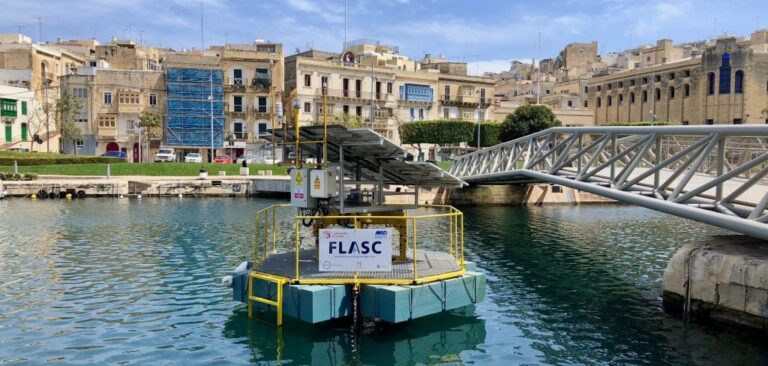Belgian firm Flasc, which is developing energy storage solutions for the offshore sector that do not rely on batteries, has established a collaboration agreement with Subsea 7, a global offshore projects and services specialist for the energy industry.
Flasc says that its patented Hydro-Pneumatic Energy Storage (HPES) concept combines pressurized seawater with compressed air to create an efficient, large-scale energy storage device that can be applied across a wide range of offshore applications. The first working prototype was successfully tested in 2018, and the technology has been granted a Statement of Feasibility based on a technical and commercial assessment by DNV-GL.
According to the companies, the collaboration combines the concept definition capabilities and specialized HPES system expertise of Flasc, with the subsea solutions, technologies and experience of Subsea 7, toward the commercialization of offshore HPES. The parties state they will develop solution classes based on Flasc’s core technology, targeting a number of use cases, including conventional grid-connected wind farm applications to decarbonization initiatives in the offshore oil and gas sector. The parties will also jointly pursue early-stage implementations of these solutions within Subsea 7’s upcoming and future projects.
Daniel Buhagiar, co-founder and CEO of Flasc, commented, “We truly believe that sustainable co-located energy storage will be crucial to unlocking the full potential of offshore renewables. We have seen consistently growing interest for innovations that address the unique challenges of the offshore environment. This collaboration with Subsea 7, a global leader in the sector, is a major milestone in the process of taking our innovative energy storage solution from a proven concept to a versatile commercial product. Through this collaboration, we look forward to accelerating our path to market, in line with the growing demands of an offshore sector in the midst of an accelerating green transition.”



